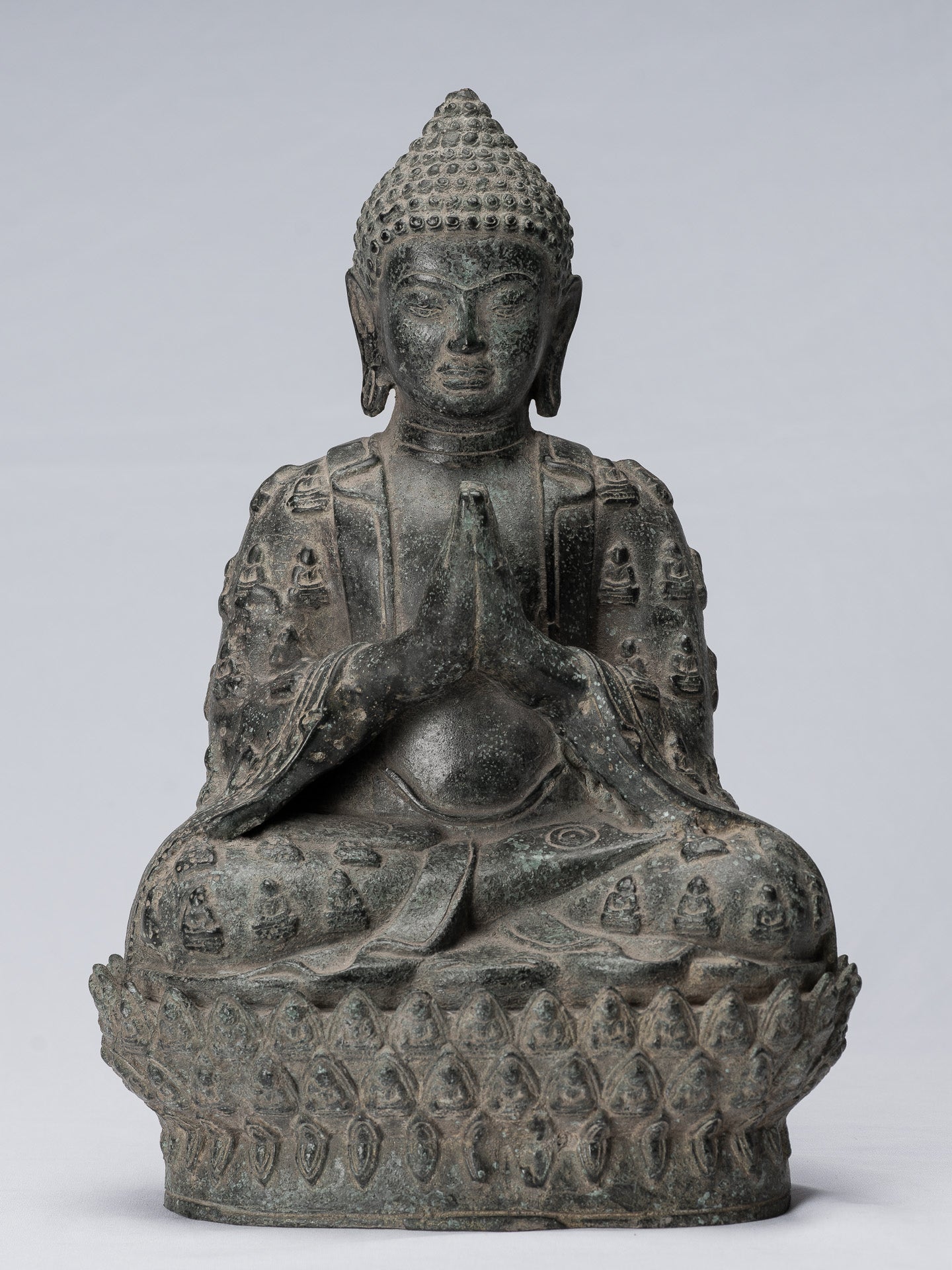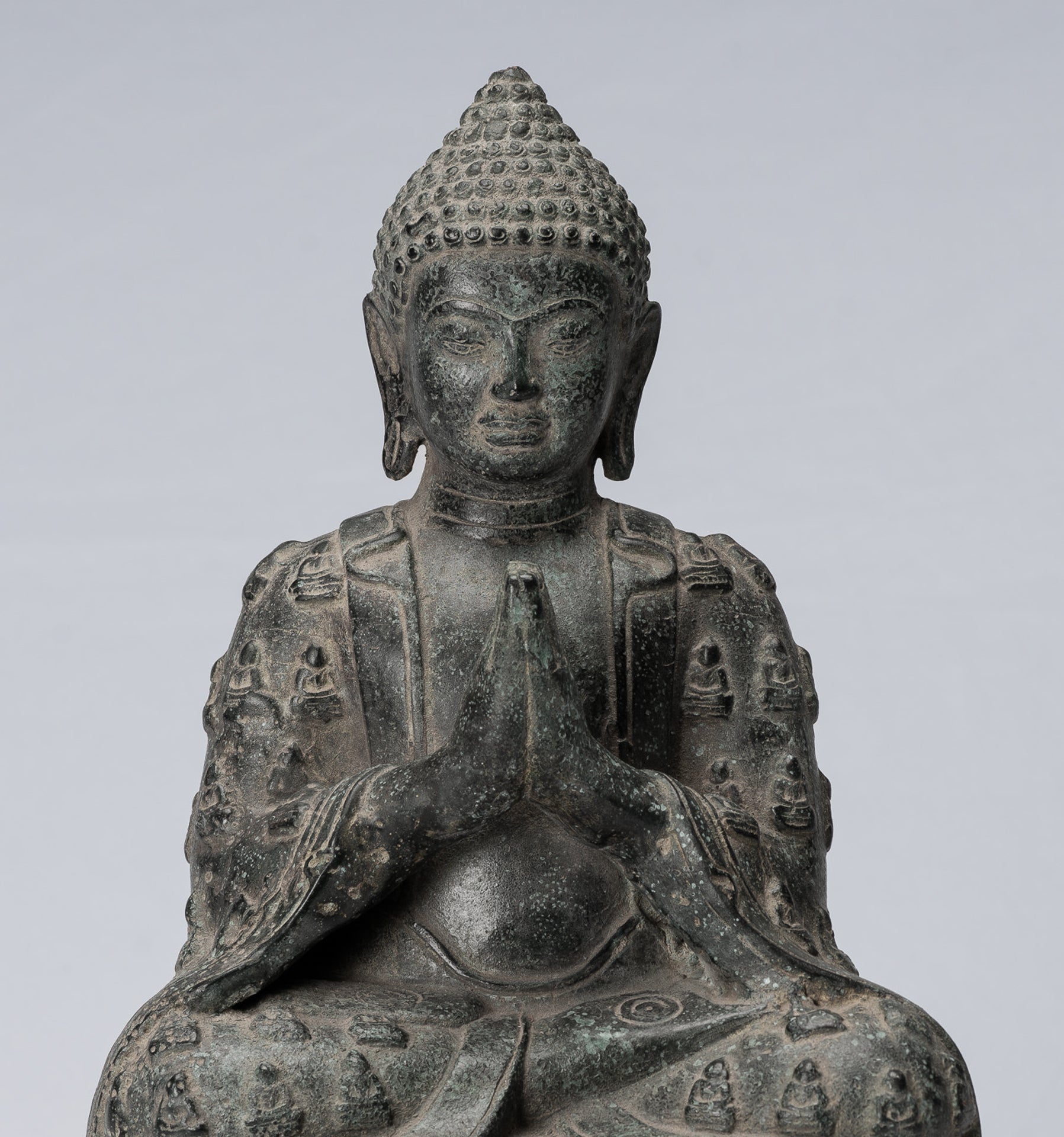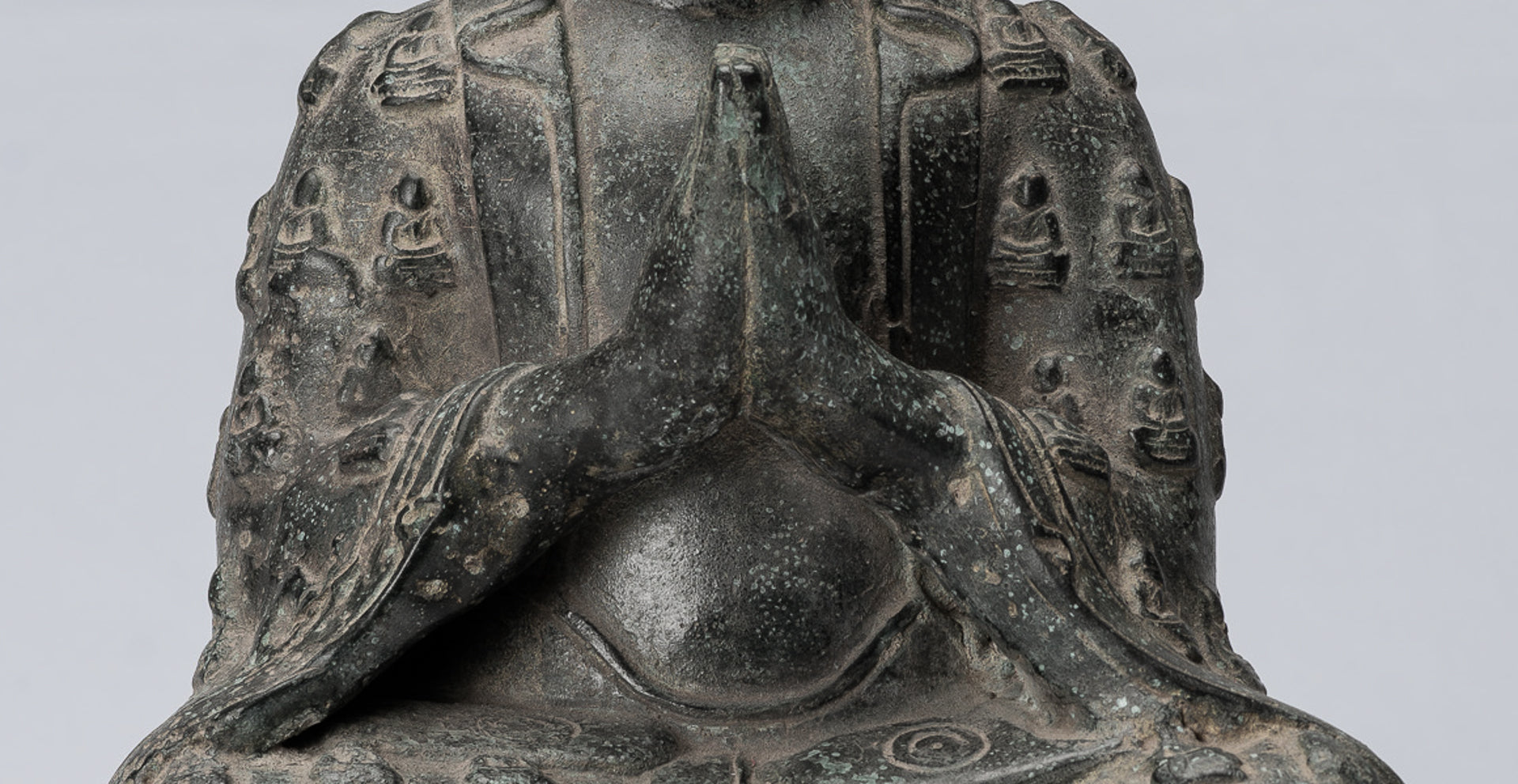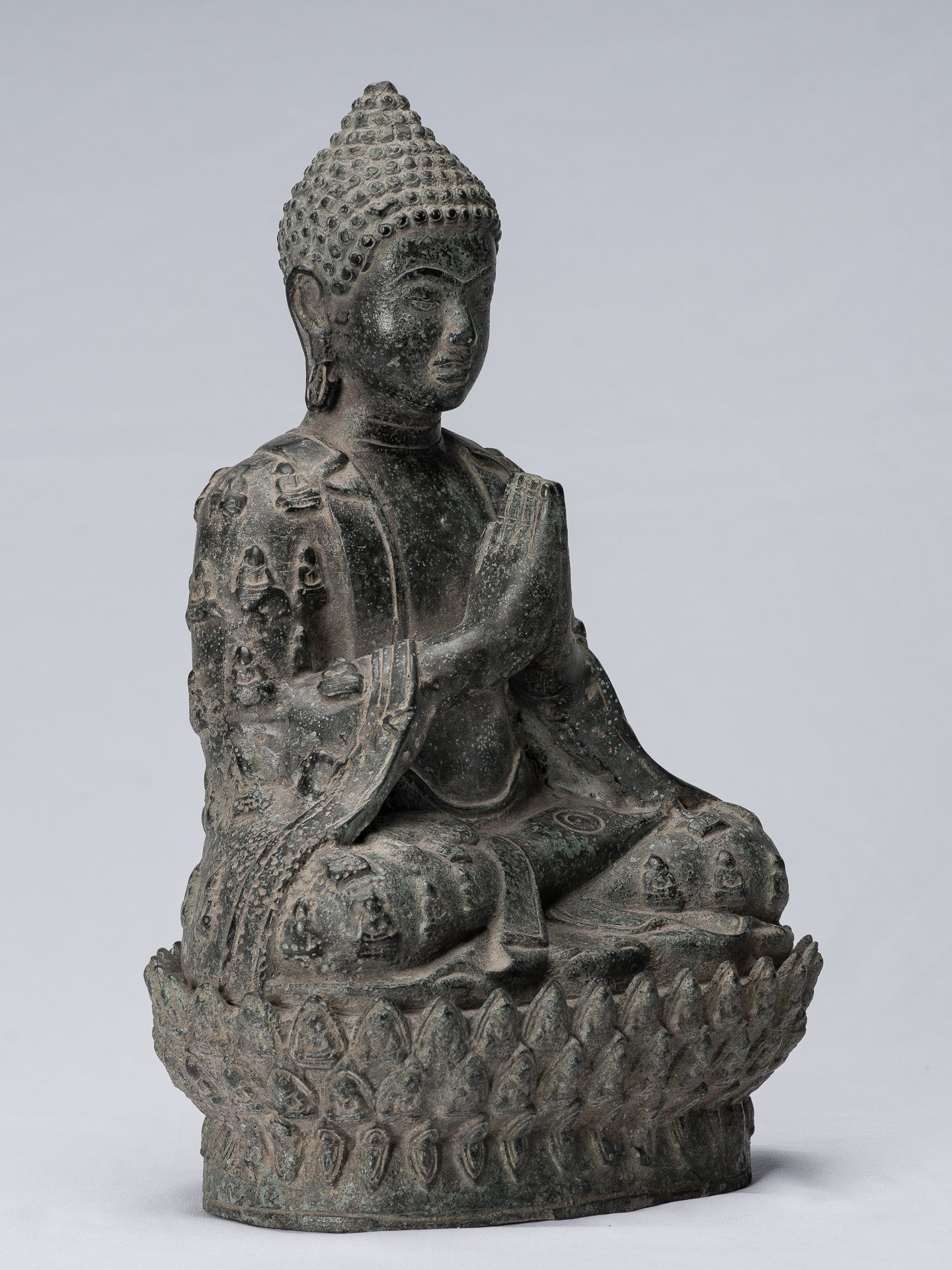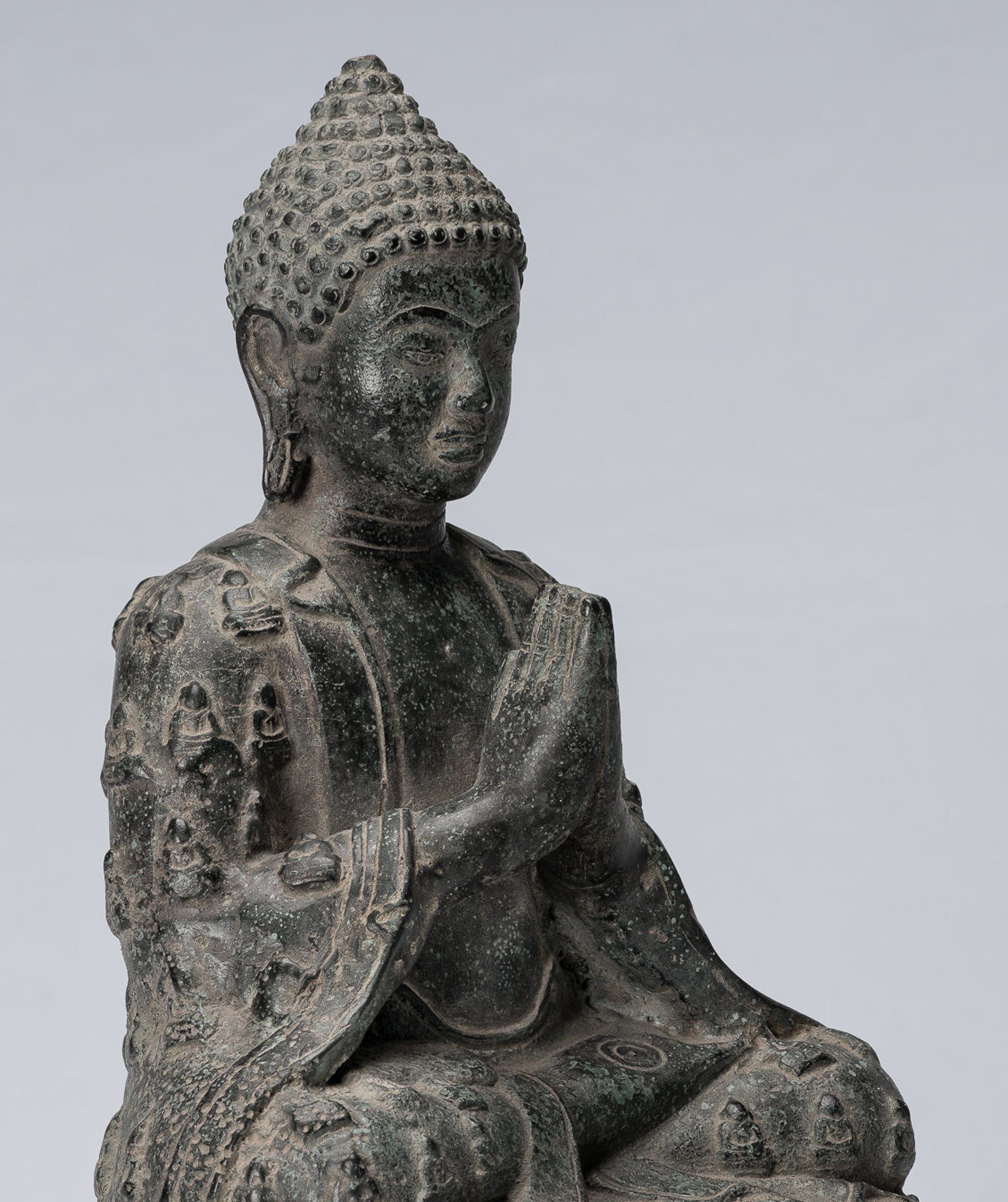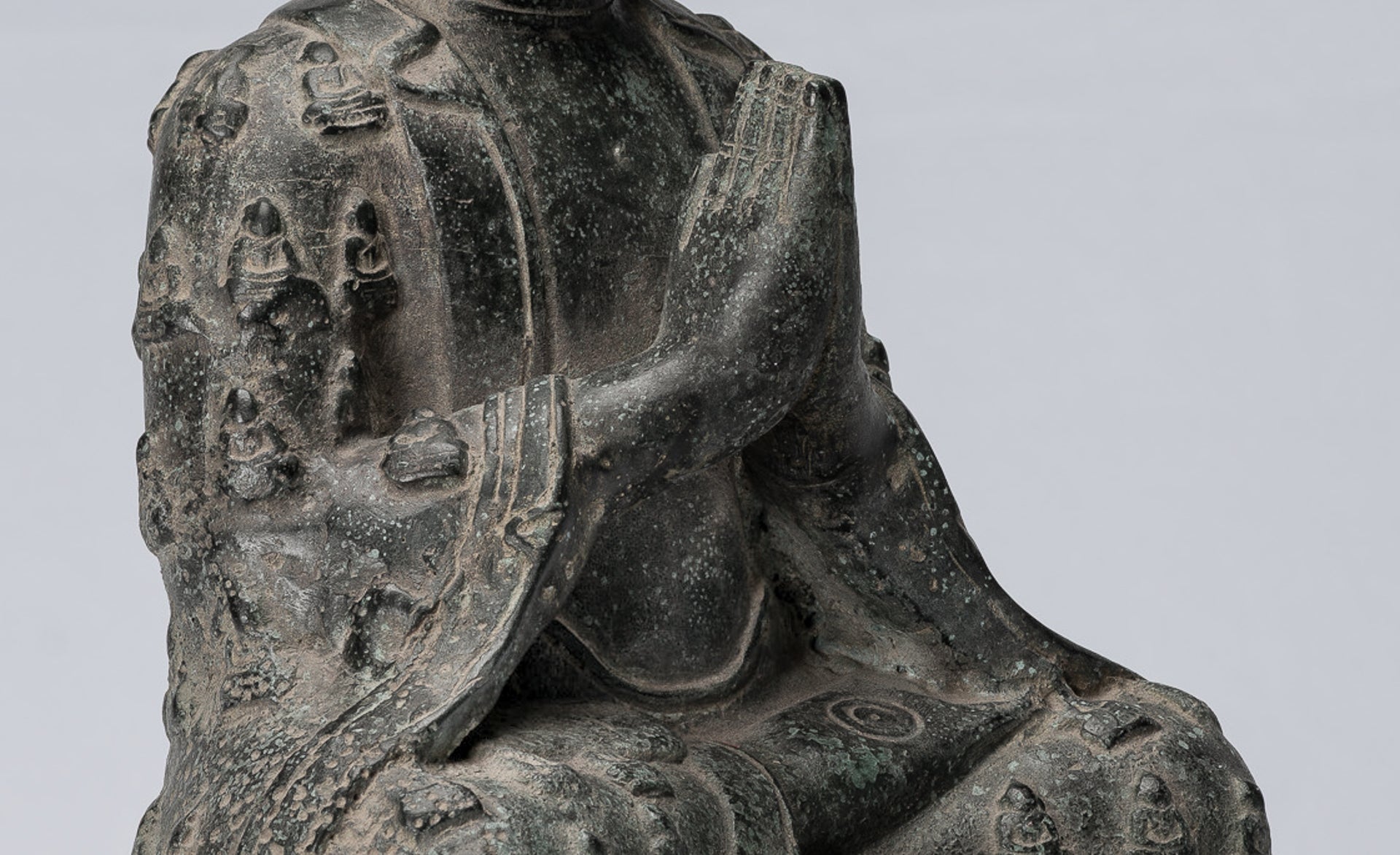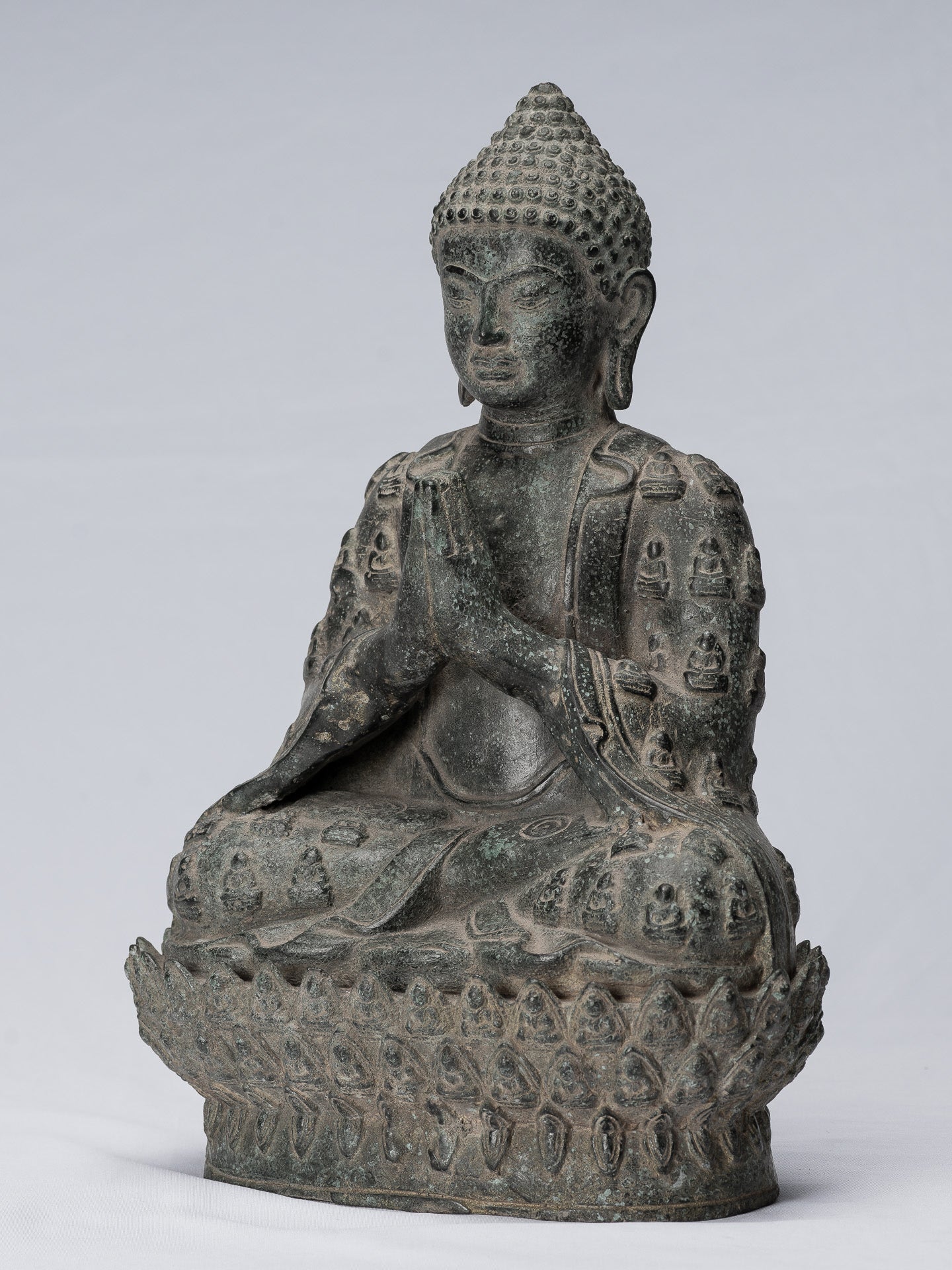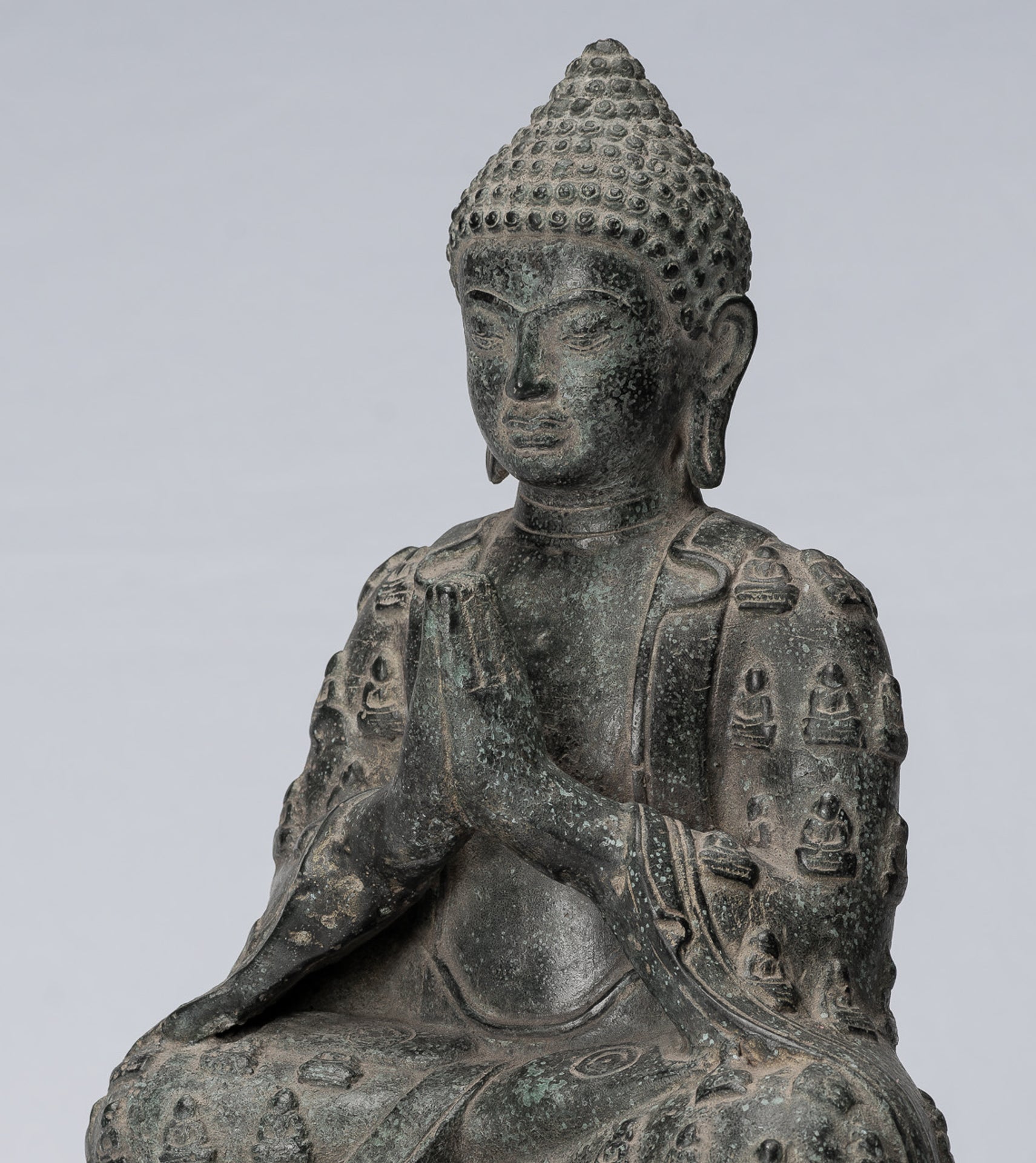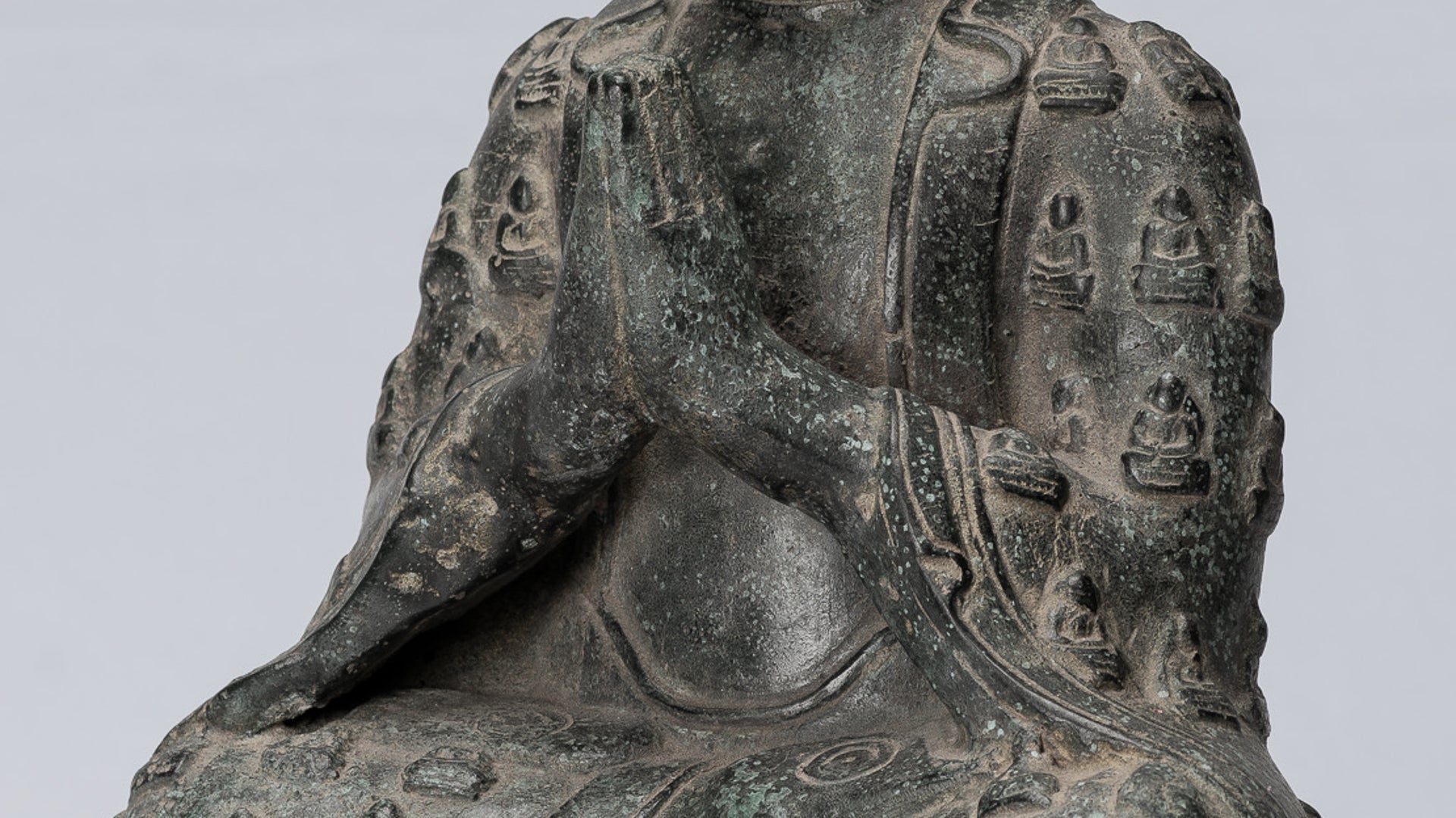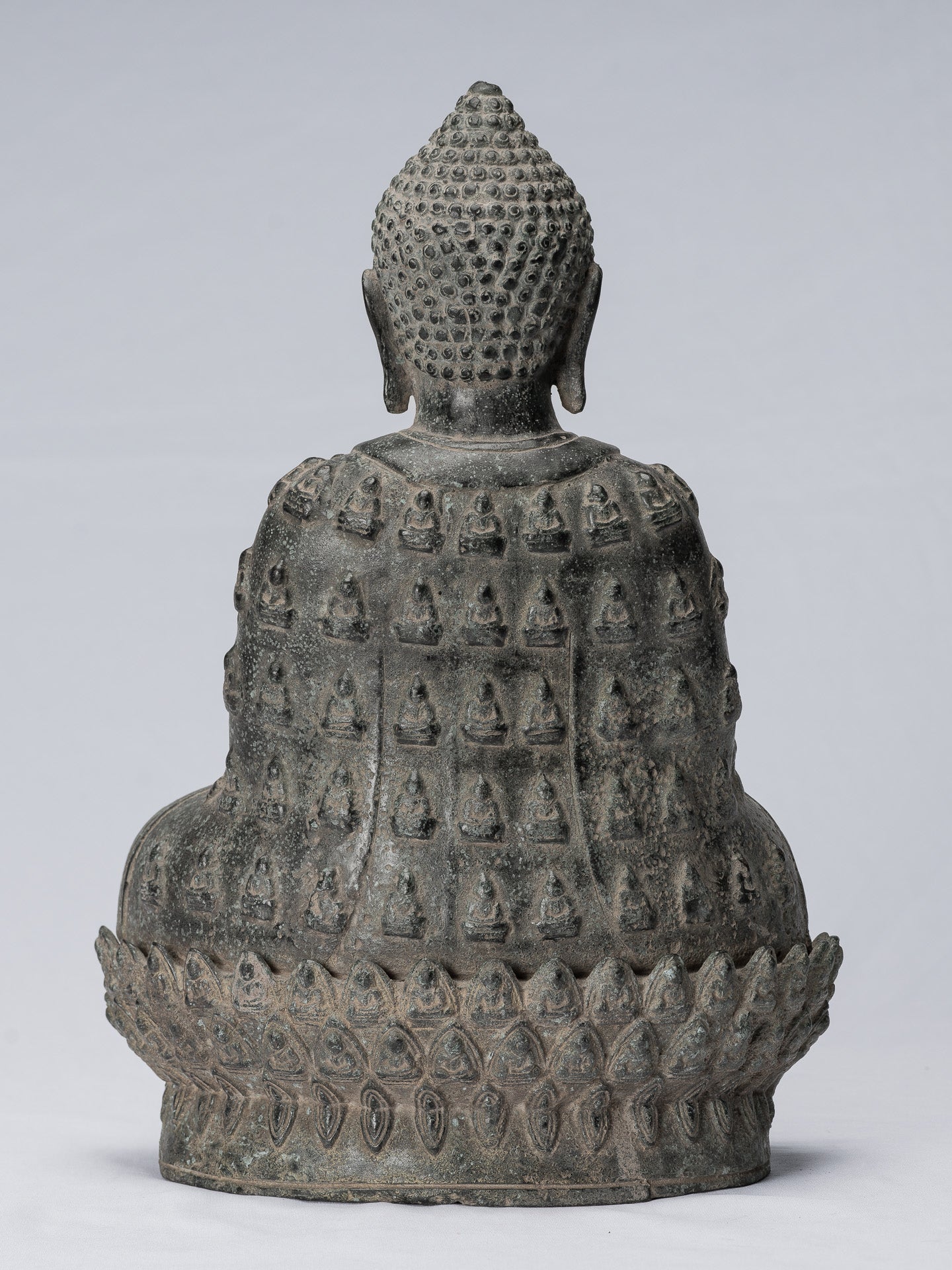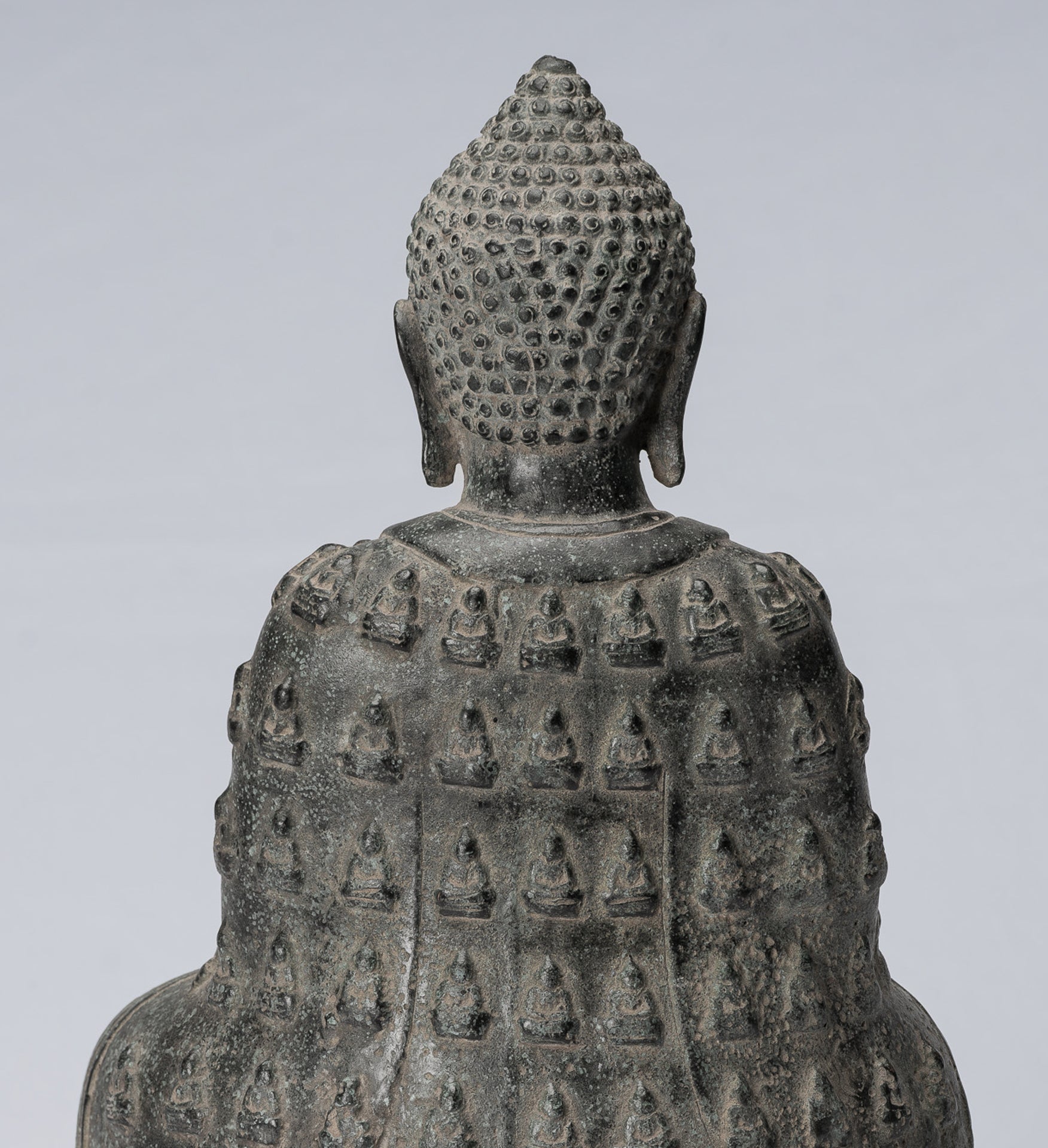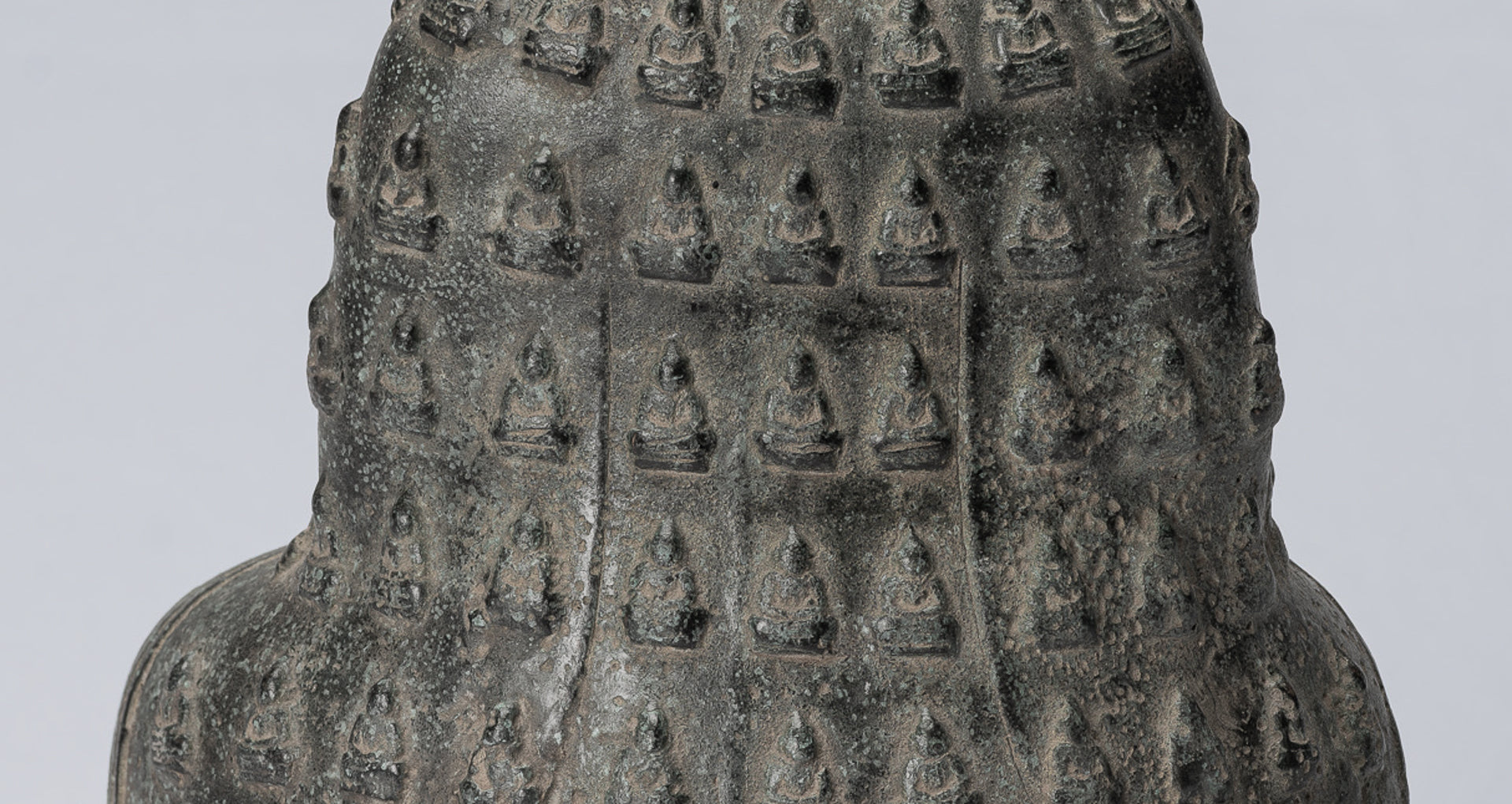-
Antique Chinese Style Seated Bronze Adoration Buddha - 34cm/14"
Measures (Height) 34cm/14"
A seated Chinese Buddha in Namaskara or Adoration pose.
In the rich tapestry of Buddhist iconography, the Namaskara Mudra stands as a gesture of profound adoration and reverence. Also known as the Adoration or Anjali Mudra, this hand gesture reflects the universal spirit of greeting, respect, and humility.
The Namaskara Mudra finds its roots in the cultural and spiritual traditions of ancient India. The word "Namaskara" is derived from Sanskrit, where "namas" means 'bowing' or 'adoration.' This gesture involves bringing the palms together at the heart center, fingers pointing upward, in a gesture that signifies unity, respect, and the recognition of the divine within oneself and others.
The Namaskara Mudra holds special significance in the context of Buddhism as not only is it a gesture used by Buddha to reflect humility and interconnectedness, it is also a gesture of homage to the Buddha. Devotees, practitioners, and followers adopt this gesture as a way of expressing deep veneration and respect for the Enlightened One. It is a tangible expression of the profound spiritual connection between the practitioner and the Buddha, embodying the principles of humility and acknowledgment of the path to enlightenment.
The Buddha is seated on a lotus leaf base, decorated with many Buddha in the Enlightenment pose, in the cross-legged yogic, adamantine posture of vajraparyankasana, the right leg over the left, with the soles of both feet facing upward.
The lotus flower represents the attaining of enlightenment and the ultimate fulfilment that follows. This symbol is heavily used in Eastern religions, which is why it can appear as both a held item or a seat. Some say that as the lotus flower grows in dirty water but becomes something beautiful, it demonstrates how we must forget our attachments to the material world around us and focus on our inner spirituality in order to seek happiness.
His robe is draped over both shoulders and is also decorated with many Buddha, in the meditation pose. The lower hem of the robe comes all the way down so that the under-cloth or skirt is completely covered.
Mandalas can be seen on the soles of his upturned feet. His hair is formed of tight curls that form a large ushnisha protuberance on top of his head symbolising his high level of spiritual development. His earlobes are stretched long from a youth spent as a prince wearing heavy gold earrings.
The Namaskara Mudra stands as a timeless embodiment of reverence, unity, and spiritual connection. As practitioners and seekers adopt this gesture, they partake in a tradition that spans centuries—a tradition rooted in the acknowledgment of the sacred within and around us.
In the simplicity of bringing palms together, we find a gesture that transcends words, cultures, and beliefs, inviting us to bow not only in reverence to the external but also to the divine essence that resides within every heart.
The Namaskara Mudra is a silent eloquence, a universal language of adoration that continues to echo through the corridors of time, reminding us of the profound simplicity that lies at the heart of our shared humanity.
The casting is beautiful as you can see in the fine details of the face. Each detail is rendered perfectly. The distinctive patina of the piece is also particularly delightful. He holds his hands clasped together in the adoration pose.
SATISFACTION GUARANTEE - We have been offering SE Asian Art for many years and are proud of the reputation we have developed for fair and honest listings. However, if for any reason, whatsoever, you are unhappy with your purchase please just let us know and we will provide a full refund. We want you to be 100% happy with your purchase.
-
The majority of orders will be shipped with DHL. This is a secure, express and fully tracked service.
Items less than 2Kg we typically ship using Royal Mail.
Once we receive your order we try to ship all orders the same or next working day.
Large and/or fragile pieces requiring palletising, specialist crating and/or extra packaging may take a little longer. Palletised shipments will be delivered curbside.
All orders over 35 GBP will be shipped free of charge.

-
We genuinely hope that all purchases delight.
However, if they do not, regardless of reason, we will refund all orders upon receipt of the unwanted item. Just notify us within 14 days of receiving your order that you wish to make a return and send the piece back to us with 30 days of delivery.
Thai Sukhothai Buddha images are often considered the purest expression of Thai Buddhist aesthetics, combining spiritual serenity with flowing, almost flame‑like elegance.
They emerged in the Sukhothai Kingdom (13th–15th centuries) and went on to define what many people today instinctively recognize as the “classic Thai Buddha.”


